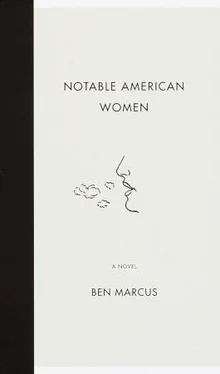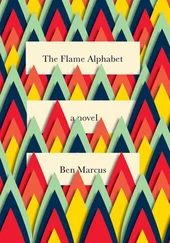As a child of nine, I fasted for four months and still gained three pounds, accumulating mass through gestural practice and the hard women’s mime that was popular at the time in my family. If I fast at the wrong time of day and become caught in a rainstorm, I could easily become paralyzed. I will never fast without wearing a heart magnet (also called The Cookie), which acts effectively as a reset button in such situations. In a winter water fast (WWF), the body absorbs water rather than swallows it, to ventilate the throat and mouth, and scour them free of language residue, or Word Sugar. Much water weight can be gained in the process; spot gaining can specifically be used to enlarge the hands (which can never be too big). When a dieter exits this fast, the French language is the only alphabet of sounds that will not wound the mouth, the flesh of which has softened under the absence of words and will be cut to shreds by the recitation of sharper languages such as German or English, at least until a palate callus is again developed so normal speech may resume.
As with most diets, however complex they are, water is still the crucial element that supports or undermines the actions of the various edibles. Water is clearly the primary instruction set for the person in the world. Yet Thompson Water™ is the only treated, strategic water used to forcibly alter and promote specific behaviors. (It is technically not a soda: When sweetened, it will burn through the belly and pass from the body as a photographic liquid of the person who swallowed it.) If used more widely in America, Thompson Water™ could easily lead to radical new behaviors — performances of the human enterprise never seen before. Such is the hope, anyway, of people like my mother, who distributed water in the most violent way imaginable (and whom I propose to reveal later in so much detail that no one need ever mention his mother again).
The notion of Thompson Water™ probably derives from the early American Pantomime Water (Shush), a liquid used to teach children how to behave in the home, marketed in a beverage series called Simple Skills for Children, at sixty cents a bottle. The inner Ohio Pantomime Water of the ’60s, devised by Burke, was administered to me like baby formula and subsequently taught me how to stand and walk, to run, to read, to call my mother’s name, and to sing using only mouth-carved breath, a storm music developed in Little England and used here to duplicate the sounds of trains, automobiles, and crashing waves. Despite everything that has happened, and everything I desired to happen that never did, I can still soothe myself with this kind of music. Pantomime Water operates under the principle that water is the purest medium to store the details of behavior. When my mother placed a jar of water in the Learning Room and then walked circles around it, the water recorded the principles of walking — it witnessed and reflected her motion — so if I drank from the jar, I absorbed the instructions and could then walk myself. The implications of this type of water-based instruction — to drink the source code of any task — are quite broad, and should soon lead to a widespread behavior-sharing system that will eliminate most notions of expertise and special skills. Basic tasks like mowing, painting, fishing, and hunting will be made available as affordable soft drinks. There will be men’s water and women’s water, water for sleeping, running, and hiding.
Because I am a man, the effects of the diet have not been optimal, to say the least. My beard has been slow to grow, I suffer a hollow feeling in my bones, and mostly I prefer to rest in my chair and watch the clouds bleed in and out of the sky. My parents probably understood this going into their project with me. Yet my career as a person has been aimed in part to shatter my accidental manhood and create, in its place, something else. I cannot resent being a subject for the food work and motion studies of men and women who are less than scientists, who are at the forefront of a field that hardly exists; while some of their errors and blind experiments have caused me direct pain and confusion, elsewhere their brilliant and pioneering work has ensured that my life has been filled with astonishing surprises.
While I do not presume to possess the food knowledge of a Thompson or a Burke or a Dark, or even someone as deeply wrong-minded about food and other mouth-destined objects as my imprisoned father, I have field-tested this book with control groups under the influence of varying food-combination/ absorption strategies, with and without water, in varying climates and stress conditions, and I believe there is a clear-cut way to optimize the reading experience, an eating program to best dispose the reader’s body toward a story. Because my results are not statistically valid or verified by any literary council, I cannot say definitively that readers will necessarily survive the project I propose for them, nor am I interested in such a guarantee. Every eating style courts its own danger, and reading without protective equipment is risky for other reasons. Thus all food-intake recommendations, nonfood-nourishment strategies, special language fasts, and reading-equipment suggestions that I will offer are only meant as general guidelines and should not be undertaken without consultation with a doctor. Most American and English-speaking doctors will be familiar with the risks of food-assisted reading, and they will be able to offer advice tailored to the frailties of each patient.
The Fast
Because the Marcus family, through elaborate trial and error, bloodshed, and heartbreak, believes that food plays an important role in how words enter the body, and what these words come to mean, it is first recommended that a cleansing fast of nuts and milk be undertaken. For one week, nothing but these foods should be consumed; each day no more than a pint of milk and a pound of nuts. While an ideal reading experience cannot be guaranteed, the nutritive ballast of nuts and animal water can ensure that the reader’s body will be sensitized to the women’s histories offered in this book.
Nuts, when consumed in bulk, create a grammar sympathy quotient that is nearly off the map; almost any idiom can be understood through the regulated intake of these items. Although I have not been trained in the language of other people — the so-called French, Spanish, or Italian tongues, among others — I discovered early in life that alterations to my diet could help me understand the strangled noises of these people, should they ever decide to speak to someone like me, or should I ever be required to decipher their weird marks on paper. These alterations often involved a nut called the almond.
Milk, on the other hand, if properly prepared and consumed, increases sensitivity to unusual locution, dialects, and accents, while flat bread baked in hot salt for a day can aid with problems of believability, when the statements being made are incredible or impossible-seeming. Increased gullibility, on the other hand, is a problem with this type of bread. Liars will have a free run of a crowd that feeds in such a way.
Once the fast is undertaken, a healing crisis should come on the third or fourth day. For some readers, the crisis will be revelatory, with great understandings washing through the body like a wind made of warm water. Others may find the physical changes too abrupt and uncomfortable, and they would do well to stay near a private soundproof bathroom, or wear limb mittens to prevent excess spasm, seizure, and Infant Language Recall. (My first experience with this type of fasting proved to be too much for my small intestine, which ended up a casualty to the project — a language diaper is now required.)
Once this fast is completed, the tongue should be dry and hard, allowing spoken vowels a dynamic range and crispness that will compensate for a decreasing ability to produce hard sounds. It will be possible, in effect, to speak intelligibly with an all-vowel repertoire, rather like holding the tongue while talking. This new, women’s language (since women’s mouths are far better suited to it) has probably five times the sophistication of the crude, hard men’s language known as English, filled with its rough consonants and abrupt acoustical stops, which inevitably result in the choppy air so prevalent whenever a man is speaking, the men’s weather that, quite frankly, can start to stink, halting the flow of sweet air around a person’s head.
Читать дальше












